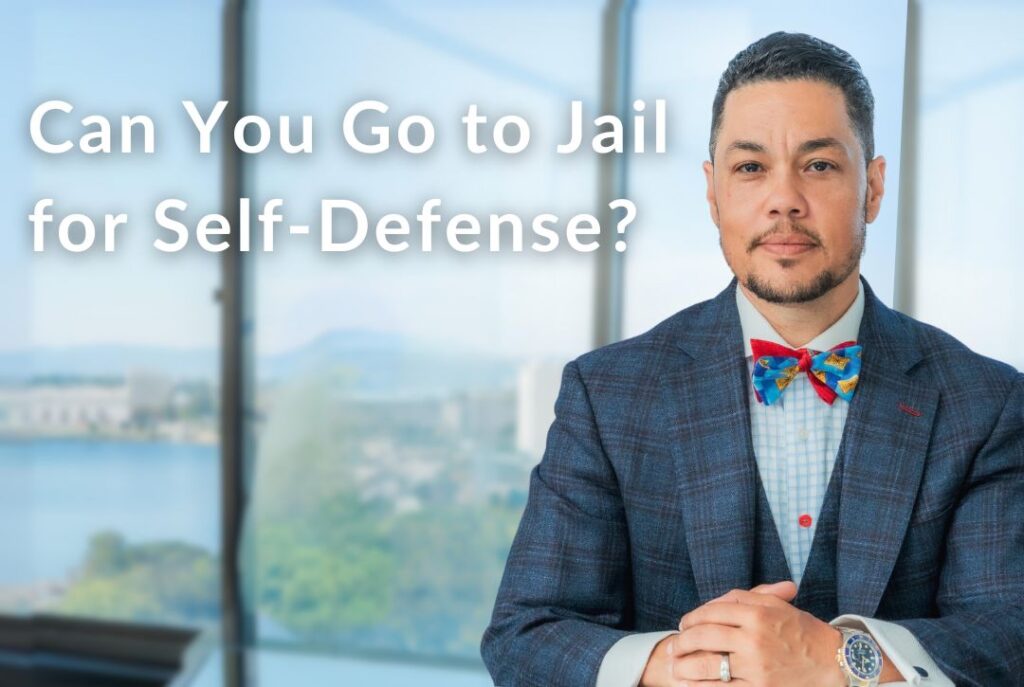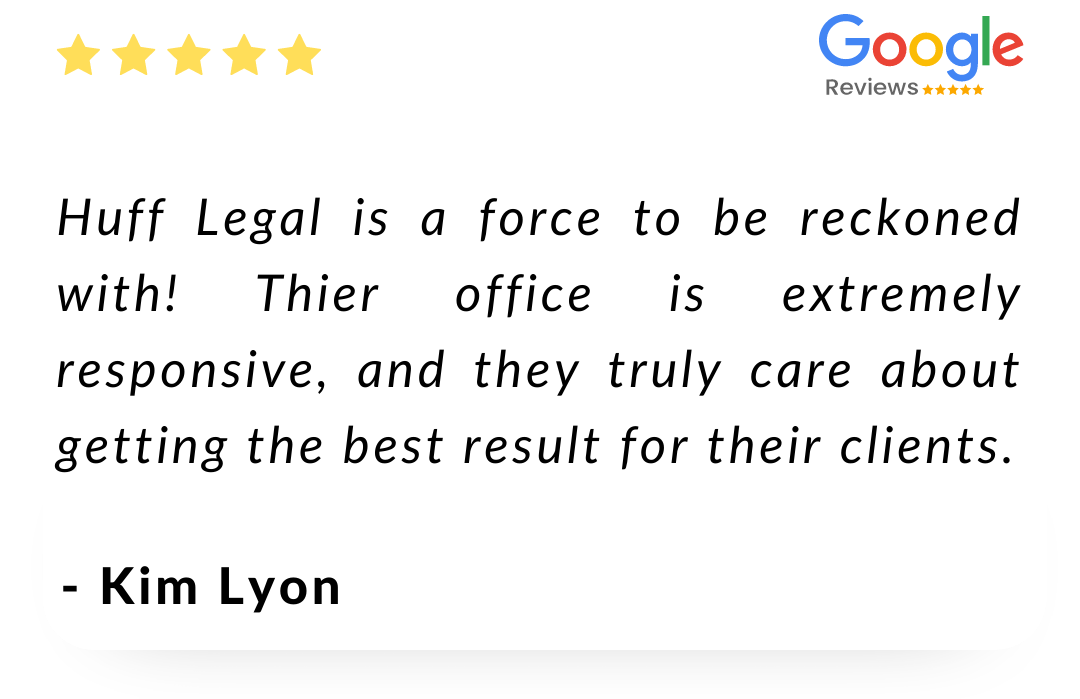Can You Go to Jail for Self Defense?
Can You Go to Jail for Self Defense?
When it comes to self-defense, many people wonder if they can still go to jail despite protecting themselves. The short answer is yes, depending on the situation.
Even in cases of self-defense, using excessive force or failing to meet certain legal criteria can lead to criminal charges. Understanding the laws around self-defense is key to ensuring your actions are legally justified.
This article will guide you through the rules governing self-defense, particularly in California, and explain when it could lead to legal trouble.
The Legal Definition of Self-Defense
Self-defense allows you to protect yourself or others when facing immediate danger or threats of harm. To claim self-defense legally, you must show that you used force to prevent someone from using unlawful force against you. Self-defense is often invoked in cases of assault, murder, or domestic violence.
Immediate Danger
The right to self-defense kicks in when the danger is immediate. If someone physically or verbally threatens you, and you believe harm is imminent, you are justified in defending yourself. However, once the threat is over, the right to self-defense ends.
Reasonable Fear
Your belief that you are in danger must be reasonable. Courts and juries will assess whether your actions were appropriate given the circumstances at the time. Even if you overestimated the danger, your response is valid if it was based on a reasonable belief of harm.
Equivalent Response
The force you use in self-defense must be proportionate to the threat. For example, responding with deadly force would not be justified if someone threatened you with a minor shove. The force should match the danger you’re facing, meaning you should only use as much force as necessary to stop the threat.
Request a Free Consultation
Duty to Retreat vs. Stand Your Ground vs. Castle Doctrine
Some states require that you attempt to flee before using force in self-defense. In California, however, the Stand Your Ground principle allows you to defend yourself without retreating, especially if you are in your home, covered by the Castle Doctrine. However, if you are the initial aggressor, self-defense may not apply.
When Acts of Self-Defense Become Criminal Aggression
There are limits to how far self-defense can go. If you act with unwarranted aggression or use more force than necessary, it can turn into criminal aggression, which could result in jail time. It’s essential to know where the line between self-defense and criminal behavior is drawn.
Can You Be Arrested for Self-Defense?
Yes, even if you believe you acted in self-defense, you can be arrested if law enforcement or prosecutors believe your actions were excessive or unjustified. Having legal representation can help ensure that your rights are protected during the investigation.
Can You Go to Jail for Fighting in Self-Defense?
Yes, you can go to jail if it’s determined that your actions during a fight went beyond reasonable self-defense. Criminal charges could follow if the fight escalated because of your actions or if excessive force was used.
Can You Go to Jail for Killing Someone in Self-Defense?
If you kill someone in self-defense, you might still face arrest, but that doesn’t automatically mean you’ll be convicted. Self-defense can serve as a valid legal defense, but you’ll need to prove that your actions were justified by imminent danger. Understanding your rights under California law is crucial if you’re ever involved in such a case.
Is Killing Someone in Self-Defense Legal?
Yes, under California law, killing someone in self-defense is legal if it’s done to prevent imminent danger or death. You must prove that your force was necessary to stop the threat. However, using excessive force beyond what’s needed to protect yourself can lead to criminal charges.
Can You Go to Jail for Killing Someone in Self-Defense in California?
While it’s possible to be arrested for killing someone in self-defense, California law provides protection if your actions were justified. Even if the police arrest you, the burden is on the prosecution to prove that your use of force was not legally justified. A strong legal defense can help argue your case.
What If I Started the Altercation?
If you initiate the fight, claiming self-defense becomes more difficult. However, if the other party escalates the conflict and poses a serious threat, you might still be able to claim self-defense. The circumstances surrounding the altercation will be heavily scrutinized.
Is Justifiable Homicide the Same as Accidental Homicide?
No, justifiable homicide occurs when killing is legally justified to prevent harm or death, while accidental homicide involves unintentional killing. In cases of justifiable homicide, like self-defense, the killing is deliberate but considered lawful.
Can You Go to Jail for Self-Defense with a Knife?
Using a knife in self-defense can be justified if the threat you face is severe enough to warrant deadly force. However, if the use of a knife is deemed excessive, given the circumstances, you may still face jail time. The level of threat you’re responding to matters greatly in determining whether your actions are justified.
California Self-Defense Laws
California provides legal protections for individuals acting in self-defense. These laws define when and how you can defend yourself, particularly when you’re faced with imminent danger or threats.
Is California a Stand Your Ground State?
Yes, California follows the Stand Your Ground principle. This means that if you are lawfully present, you are not required to retreat when faced with danger. You can legally defend yourself without fleeing the scene, even if retreat is an option.
Is California a Castle Doctrine State?
Yes, California also adheres to the Castle Doctrine, which grants individuals the right to use force, including deadly force, to defend their homes against intruders. The law presumes that if someone breaks into your home, you have a reasonable belief of imminent danger, allowing you to defend yourself without facing legal repercussions.
What Are the Elements of Self-Defense in California?
A valid self-defense claim in California requires three essential elements: imminent danger, reasonable belief that a threat exists, and justifiable force.
- Imminent Danger: The threat must be immediate. You can’t claim self-defense for a threat that’s distant or not currently happening.
- Reasonable Belief a Threat Exists: You must have reasonably believed that you were in danger of harm or death. This belief must be evaluated from your perspective at the time of the incident.
- Justifiable Force: The force you use must be proportionate to the threat. Deadly force is only justified if you genuinely believe that your life is in danger.

As Seen On












Getting Legal Help for Self-Defense Cases
If you’re facing legal charges after using self-defense, getting legal help is crucial. An attorney ensures your actions are fully understood within the law, protecting your rights and building a strong case.
Can a Criminal Defense Attorney Help?
Absolutely. A criminal defense attorney will review your case, gather evidence, and prove that your use of force was justified. They will advocate on your behalf to minimize or dismiss charges, ensuring your side of the story is heard.
How Long Can You Go to Jail for Self-Defense?
You could face months or even years in jail if your actions are deemed excessive or unjustified. However, a successful self-defense argument may result in no jail time at all. It depends on the case specifics and how well your lawyer presents your defense.
Why You Should Contact a Lawyer Immediately
Contacting a lawyer right after an incident ensures that important evidence is preserved and your rights are protected. A lawyer can guide you through every step of the legal process and give you the best chance of a favorable outcome. The sooner you act, the better your defense.
FAQ
Are you allowed to fight in self-defense?
Yes, self-defense is allowed if facing an imminent threat or harm. However, your response must be proportionate to the threat you’re facing.
Can you hit back if someone hits you?
Yes, you can defend yourself if someone physically attacks you, but the force you use must be reasonable and not excessive. Overreacting can result in criminal charges.
Can a guy hit a girl if she hits first?
Legally, self-defense applies regardless of gender. If someone attacks you, you have the right to defend yourself, but the response must be proportionate to the threat.
Can you legally throw the first punch?
No, throwing the first punch usually does not qualify as self-defense unless it’s done to prevent an imminent attack. Self-defense laws typically require a reasonable belief that you are in danger.
Can I defend myself if someone punches me?
Yes, you can defend yourself if someone punches you, but your reaction must align with the threat level. Excessive force could lead to legal consequences.
What Clients Say About Us





Schedule Your Free Consultation Today
Contact Huff Legal Today
If you’re facing legal challenges related to self-defense, don’t wait to get the help you need. Self-defense laws can be complex, and making sure your actions are legally justified is crucial. At Huff Legal, we’re here to guide you through the legal process, protect your rights, and help build a strong defense for your case.
Our experienced attorneys will work with you to ensure that you get the best possible outcome. Reach out today for a free consultation and learn how we can support you. We’re ready to help—contact Huff Legal now to start building your defense.
LET HUFF HELP YOU
As a former police officer and patrol supervisor and his time spent as a United States District Court Judicial Law Clerk to the Chief Judge, Attorney Huff knows how to navigate all levels of the complex criminal law system. We also have more than 55 years of combined experience dealing with various complex criminal legal matters and have helped just over 1,500 clients over the past few years.
Why Huff Is Your Best Option For Criminal Defense
55+ Years of Combined Experience
At Huff Legal, we have more than 55 years of combined experience dealing with complex criminal legal matters, which can oftentimes be quite challenging. In order to get the outcome you deserve, you need a team of experienced attorneys on your side, who can help you navigate the legal system, so you can move past this situation and focus on the life ahead of you!
5 Star Rating on Google
We have a proven track record of success and are dedicated to our clients’ best interests. If you’re looking for a law firm that will always have your back, look no further than Huff Legal. Just have a look at some of our amazing client reviews over here!
1,500+ Happy Clients
Over the years, we’ve had the privilege of helping over 1,500 clients with their legal needs. When you work with us, you can be confident that you’re getting the best possible legal representation. We’re proud of our track record and our reputation for being a firm that delivers great results.
What Our Clients Say About Us


Sheila


Abel Resendiz


Manuela Frazier


Doris
Contact Huff Today
Request A Free Consultation
* Free consultations only available for Criminal Defense


In legal terms, an accessory to murder refers to an individual who aids, abets, or otherwise assists in committing a murder. While the specifics may vary across jurisdictions, California law treats accessories to murder as active participants in the crime, holding them accountable for their actions. In San Francisco Bay Area, there are two primary types of accessories to murder:
In the event that you find yourself in the Bay Area facing accessory to murder charges, you should first call a criminal defense attorney who can help you defend your rights and lessen the effects of the investigation. Contact an attorney at Huff Legal as soon as possible following your arrest. An accomplished attorney from Huff Legal will thoroughly examine your case, who will then develop a strategy and build a defense.
